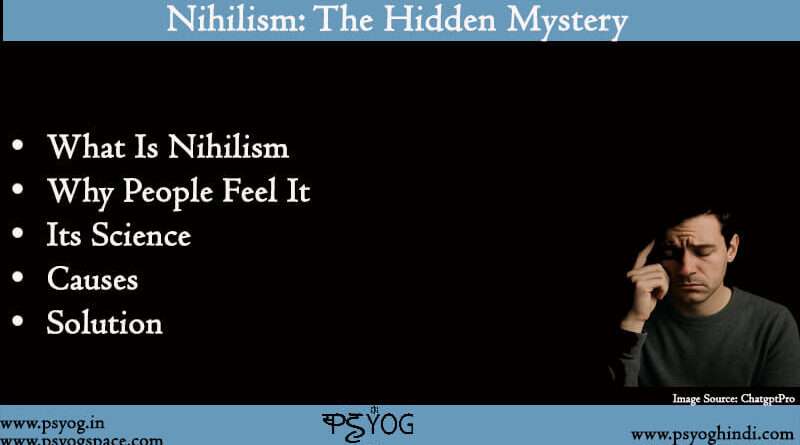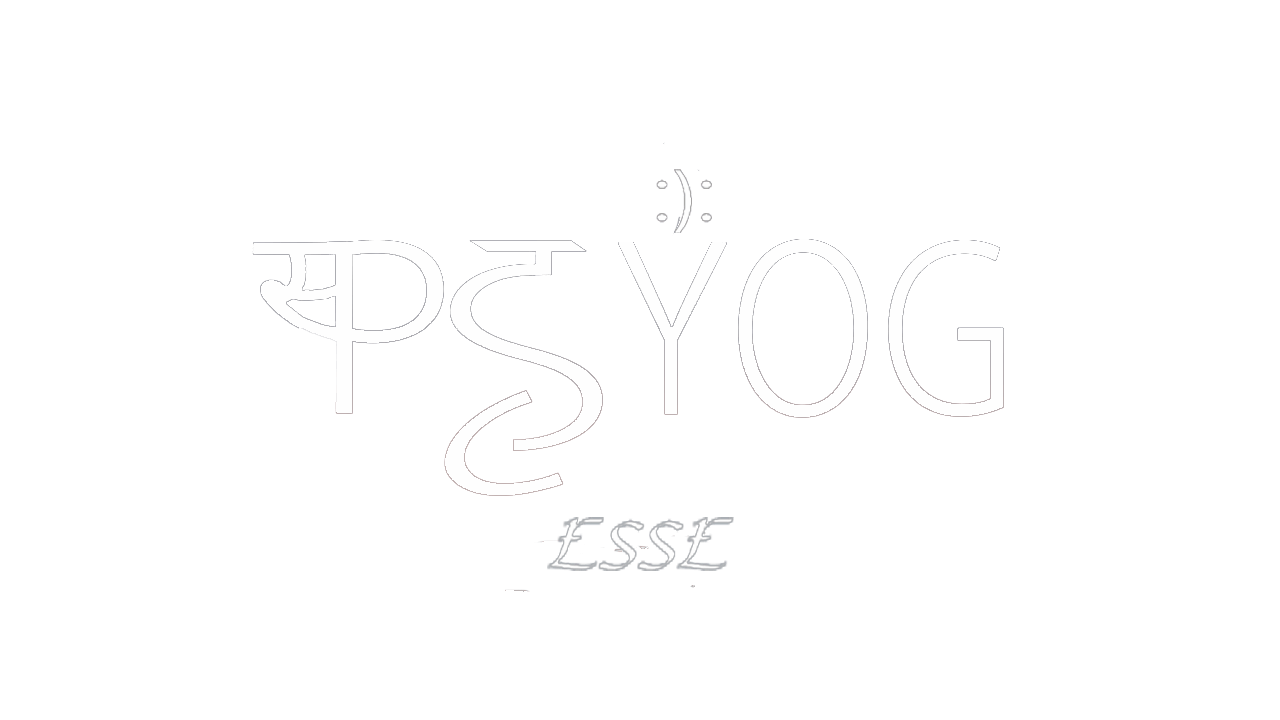Nihilism: Definition, Existential Nihilism, Nihilism Vs Existentialism, Absurdism Vs Nihilism
Tell us, have you ever had a feeling that life is not taking you anywhere? You do everything, and have tasted success, but still feel as if you have reached nowhere? Every morning you wake up, work hard, and even succeed as per society’s expectations, but still, something inside feels dissatisfied. Well, that is not boredom, but there is a term to it, and it is called nihilism. But nihilism definition is more than the idea that “nothing matters.” It is a hardcore belief that life is no predetermined meaning. This feeling often evolves into what is known as existential nihilism, when not just the world, but your own life feels as if it has no direction. And that’s when the battle begins: nihilism vs existentialism. Do you accept the void—or do you push back and make your own meaning? Then there’s absurdism vs nihilism, a different response entirely. Maybe the lack of meaning isn’t a tragedy. Maybe it’s the freedom to finally live your own way.
Nihilism Definition
Let’s strip it down. Nihilism, at its core, is what you feel when everything loses its flavor. You might be surrounded by stuff—money, noise, comfort—but nothing sticks. You’re not sure why, but it feels like life just spins in circles. This is where nihilism definition really lands—not in philosophy books, but in the everyday fog of “Is this all there is?” (Read: Existentialism, why people feel so?)
You start to notice the nature of time, that how it just keeps repeating. Monday feels like Thursday. Holidays don’t feel special. You achieve something and then go, “Okay… now what?” That’s the thing no one tells you about success: if the foundation is empty, reaching the top won’t change the view. So the real nihilism definition isn’t about being hopeless—it’s about being honest. It’s the point where the usual stories don’t work on you anymore.
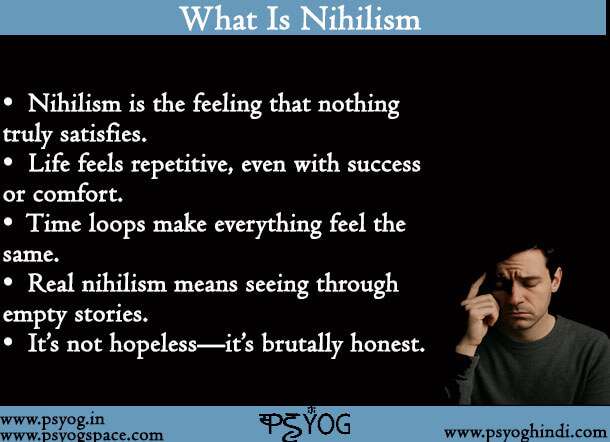
Existential Nihilism
Now it gets personal. Existential nihilism shows up when it’s not just the world that seems meaningless—it’s you. Not in a dramatic way, but in those quiet moments when nothing excites you anymore. You used to dream. Now you scroll. You used to hope. Now you distract. You’re functioning, but not really living.
The strange part is, many people around you are feeling this too, but no one talks about it. They call it boredom. They call it “just tired.” But it’s deeper than that. It’s existential nihilism creeping in through the cracks.
But maybe this isn’t a curse. Maybe it’s the beginning. Because once everything feels pointless, you’re finally free to stop pretending. You can step back from the loop. You can ask better questions. You’re no longer trying to win a game—you’re trying to understand what the game even is.
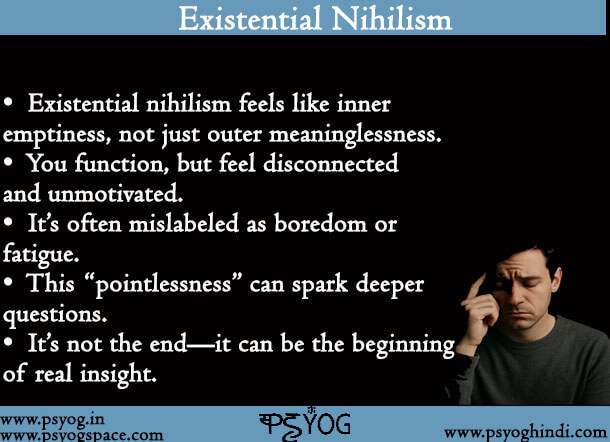
Nihilism Vs Existentialism
This is the fork in the road: nihilism vs existentialism. Both admit life doesn’t come with instructions. But they offer very different responses. Nihilism says, “If nothing matters, why bother?” Existentialism says, “Since nothing is given, I get to choose.”
That difference? It’s everything. In real life, this plays out in subtle ways. One person might say, “What’s the point of chasing dreams?” Another might say, “Since I don’t know what the point is, I’ll create one that feels true to me.” That’s nihilism vs existentialism in action. (Read: Learn the real science of mentalism)
It’s not about being an optimist or a pessimist. It’s about responsibility. Nihilism can feel easier at first. You don’t have to do anything. But existentialism? It asks something of you. It says: be awake.
Be present. Decide.
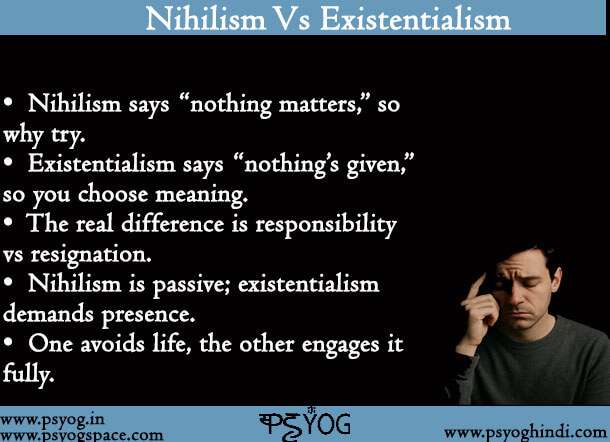
Absurdism Vs Nihilism
Now here comes the wildcard: absurdism vs nihilism. This one’s interesting. Absurdism says, “Yes, life has no meaning. But instead of crying about it, let’s laugh—and live anyway.”
There’s a kind of beauty in that. In the absurdism worldview, the universe doesn’t owe you a purpose, and that’s okay. You can dance in the middle of the nonsense. You can fall in love, write poems, play music—not because it means something, but because you can.
In absurdism vs nihilism, one shuts down, and the other opens up. Nihilism turns inward and disappears. Absurdism throws its hands up and says, “So what if it’s absurd? I’m still here. I’m still breathing.” It’s a rebellion without needing a banner.
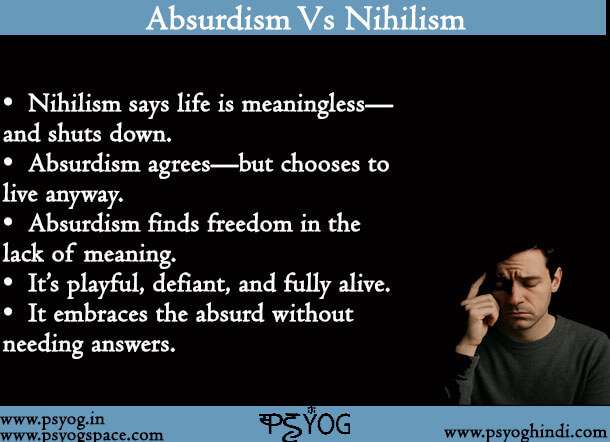
Conclusion
At some point, most people run into nihilism—even if they don’t have a name for it. And that’s okay. It doesn’t mean you’re broken. It means you’re paying attention. Once you stop believing the old stories, you have a chance to write your own.
Knowing the nihilism definition helps you recognize when you’re not alone in this feeling. And when it starts to touch your own identity, it may become existential nihilism—a mirror that asks who you really are without all the noise. (Read: Keeping your mind calm)
From there, you can decide: do you let go, or do you rise up? That’s the tension in nihilism vs existentialism. Or maybe, like Camus and others, you laugh and lean into the mystery—choosing the chaos with a grin. That’s the dance in absurdism vs nihilism.
Whatever path you take, just remember this: you’re allowed to question everything. You’re allowed to feel lost. But you’re also allowed to come back—stronger, wiser, and completely your own.
FAQs
What is a nihilist person like?
A nihilist person is a person who does not find any meaning in life. He feels detached and least bothered about what is happening around him. He has no ambitions, aspirations, and so on. Such people might look unfit for the world, but such feelings often stem from deep spiritual calling.
Only a person who does not find meaning in the physical world, dares to go beyond it.
What is nihilism in simple terms?
Nihilism in simple terms is a belief which says that life has no meaning or purpose. On the surface level, this might appear to be a defeating belief, but with the right perception, this could be liberating. Only a person who feels that life has no meaning at the physical plane, would dare to explore other dimensions.
How does existentialism differ from nihilism?
There is one thing common between existentialism and nihilism. They both say that life has no meaning. But there onwards, they differ. While nihilists say that “if life has no meaning, then why do anything?” While existentialism is a belief that if life has no meaning, then we should find something that is meaning, and it could be anything.

